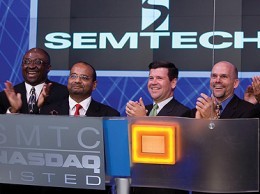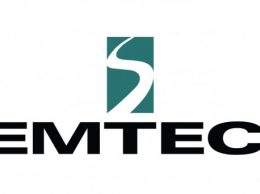 When you are a business owner, dithering around is not an option. You have to act decisively to take advantage of opportunities or the market passes you by. If you act and get it wrong you pay a price. If you don’t act at all, your business may get wiped out by a new competitive threat.
When you are a business owner, dithering around is not an option. You have to act decisively to take advantage of opportunities or the market passes you by. If you act and get it wrong you pay a price. If you don’t act at all, your business may get wiped out by a new competitive threat.
Politics operates a bit differently — dithering around seems to be the name of the game. Unfortunately for real companies doing business in real time, the years of dithering around about our archaic and ineffective tax system is starting to take its toll on how corporations think and act.
One big problem is the vase disparity between corporate tax rates in the U.S. and companies abroad. In a reversal of fortune compared to earlier decades, the U.S. now has consistently higher tax rates than many other countries. And delays in getting a fix are costing jobs and money.
In a now widely publicized meeting with President Barack Obama, the late Apple CEO Steve Jobs suggested that a tax holiday for companies repatriating billions of dollars in overseas cash could jump-start the recovery and spur U.S. companies to begin hiring again.
Closer to home, Amgen’s senior management has talked about the need to borrow money in the U.S. to pay its common stock dividend, rather than use cash the Thousand Oaks-based company is keeping overseas.
We received another potential lesson in the distortions of the corporate income tax when Semtech, based in Camarillo, announced it was buying Canadian semiconductor company Gennum for nearly $494 million in cash.
To pay for Gennum, Semtech will use $100 million of its nearly $300 million in cash and borrow the rest. If our analysis is correct, it won’t have to pay a penny extra in repatriation taxes because Gennum is a Canadian company.
That’s not what happened a few years ago when Semtech bought Sierra Monolithics of Irvine in a $180 million deal, also for cash. Semtech wound up paying $32 million in taxes, which look like they were related to its repatriating cash and its effective tax rate soared to 97 percent versus 19 percent for 2009 and 8.5 percent for 2011.
Nobody at Semtech mentioned tax efficiency or tax consequences when it announced the Gennum acquisition, one that seems to have been driven by the merits of its products, which enable high-speed transmission of video, cloud computing and other applications that takea lot of bandwidth. Semtech also will be able to dramatically increase its workforce to more than 700 engineers.
Analysts that Technology Editor Stephen Nellis talked to say that Semtech CEO Mohan Maheswaran has been methodical in his approach to acquisitions and integration of newly-acquired companies. The issue of taxes and tax reform is one that’s not likely to be solved in an election year. For now, we’ll leave the political rhetoric to the politicians and expect more dithering around as we head to November.
But the bottom line is that fixing our outdated method for taxing corporate profits could make it dramatically easier for Maheswaran & Co., and many of America’s best and brightest management teams, to plot their next expansion move.
• Contact Editor Henry Dubroff at hdubroff@pacbiztimes.com.






 Print
Print Email
Email
















